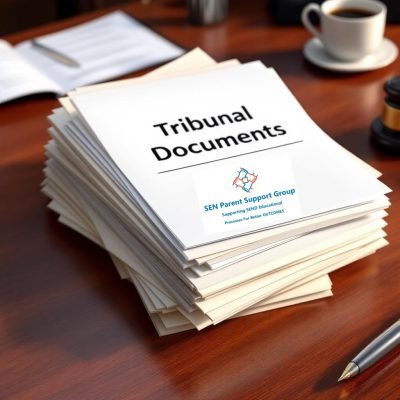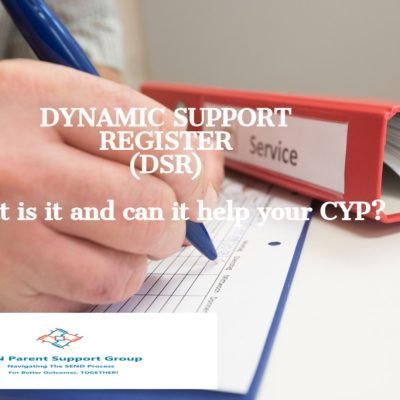Summer Safeguarding: Keeping Children Safe from Online Predators During the Holidays
As the school gates close and the summer break begins, children and young people inevitably spend more time online exploring, connecting, and playing. But as screen time goes up, so does the risk of exposure to online predators.
Safeguarding doesn’t take a holiday. It’s more than monitoring devices, it’s about equipping families with knowledge, tools, and conversations that build digital resilience. SEN Parent Support Group shows you what to look for and how to safeguard your Child or YP.
Understanding the Risks
Online predators are increasingly skilled at exploiting:
- Gaming platforms with chat functions – Discord is popular at present.
- Social media direct messaging
- Live streaming apps and anonymous platforms
- Disguised identities and manipulation tactics
They often pose as peers, use flattery, fake profiles, or shared interests to build trust. The goal? To isolate, exploit and manipulate, sometimes without a child even realising they’re being groomed.
“Stranger Danger” Isn’t Enough Anymore
Children may know not to speak to strangers on the street, but many don’t realise that digital strangers pose equal, if not greater risks.
Tip: Make “online stranger danger” a standing topic. Talk openly, without shame or fear, about how anyone online can pretend to be something they’re not.
Practical Safeguarding Steps for Parents & Carers
Empowerment starts with informed action:
| Action | Why It Matters |
|---|---|
| 💡 Set up parental controls and privacy settings | Limits exposure and restricts unsolicited contact |
| 🎮 Review game platforms and chat features | Many apps include hidden messaging functions |
| 🕵️♀️ Spot-check devices with your child | Builds trust while keeping tabs on emerging risk |
| 🔐 Discuss digital consent and boundaries | Children should know they can say no, block, report |
| 👂 Keep conversations open and regular | The goal is not surveillance but shared understanding |
Signs Your Child Might Be At Risk
These signs don’t always mean grooming is happening, but they should prompt gentle check-ins:
- Sudden secrecy around devices
- Unexplained mood changes after online activity
- Refusal to talk about “new friends” or interactions
- Being online late at night, especially on unmonitored platforms
- Using language or referencing content beyond their age understanding
If You Suspect Grooming or Online Harm
Immediate steps to take:
- Block and report the account through the platform
- Keep screenshots or chat records (don’t delete)
- Speak to CEOP (Child Exploitation and Online Protection Centre)
- Contact your local safeguarding team or school DSL, NSPCC etc,
- Reassure your child they are not in trouble, build safety, not shame
Useful resource: Report it directly to CEOP
Summer holidays should be filled with joy not exploitation. Digital freedom comes with digital responsibility and safeguarding isn’t about spying, it’s about standing beside our children, equipping them to thrive safely.
You are not alone in this. If you ever need support, clarification, or safeguarding signposting, reach out via our community platforms or contact email.
Let’s make the online world as safe as the one we’re raising them in.
Charities Supporting Families Impacted by Online Grooming
| Organisation | Support Offered | Contact / Info |
|---|---|---|
| NSPCC | Helpline, counselling, safeguarding advice, and therapeutic services for children and families | NSPCC Grooming Info |
| Childline | 24/7 confidential support for children via phone, chat, and message boards | Call 0800 1111 or visit Childline |
| Breck Foundation | Education, awareness, and school outreach based on Breck Bednar’s story | Breck Foundation Website |
| Internet Matters | Resources for parents, carers, and professionals on online grooming and digital safety | Online Grooming Resources |
| The Children’s Society | Direct support for children groomed online, trauma recovery, and prevention programmes | Children’s Society Online Safety |
| Marie Collins Foundation | Specialist support for children harmed online and their families, including therapeutic recovery | Marie Collins Foundation |
| Pace (Parents Against Child Exploitation) | Parent-focused support for child exploitation, including online grooming | Pace Support Services |
| Stop It Now! | Helpline and resources for families affected by sexual abuse and grooming | Stop It Now |
| YoungMinds | Mental health support for children and teens affected by online harm | YoungMinds Helpline |
| True Honour | Support for victims of grooming, honour-based violence, and FGM | True Honour Support |
For peer support and SEND law resources join us – click on the FB link below!
Understanding SEND
Communicating With School
All Things EHCP
- LETTER: To LA When They Use Specialist Advisory Service (SAS) INSTEAD of Educational Psychologist During EHCPNA Process
- LETTER: LA Failure To Notify If Issuing the plan
- RESOURCE: Moving Local Authorities
- LETTER: Mediation Agreement – LA agreed to issue/amend EHCP but hasn’t provided draft within 5 weeks
- LETTER: Refusal To Assess Won and LA Not Notified of EP Assessment Within 2 wk Timeframe
Attendance, Exclusions & Sanctions
Complaints
- LETTER – Enforcing Interim Education S43 with LA + Escalation Letter + Tribunal Request
- LETTER: To School When Whole School Approach To Adjustments Is Not Applied Consistently (IEP or EHCP)
- RESOURCE: LGO Outcomes
- LETTER: Right to Choose Rejection 3 Step Complaints Letters
- RESOURCE: Core Deficit Supporting Tool





